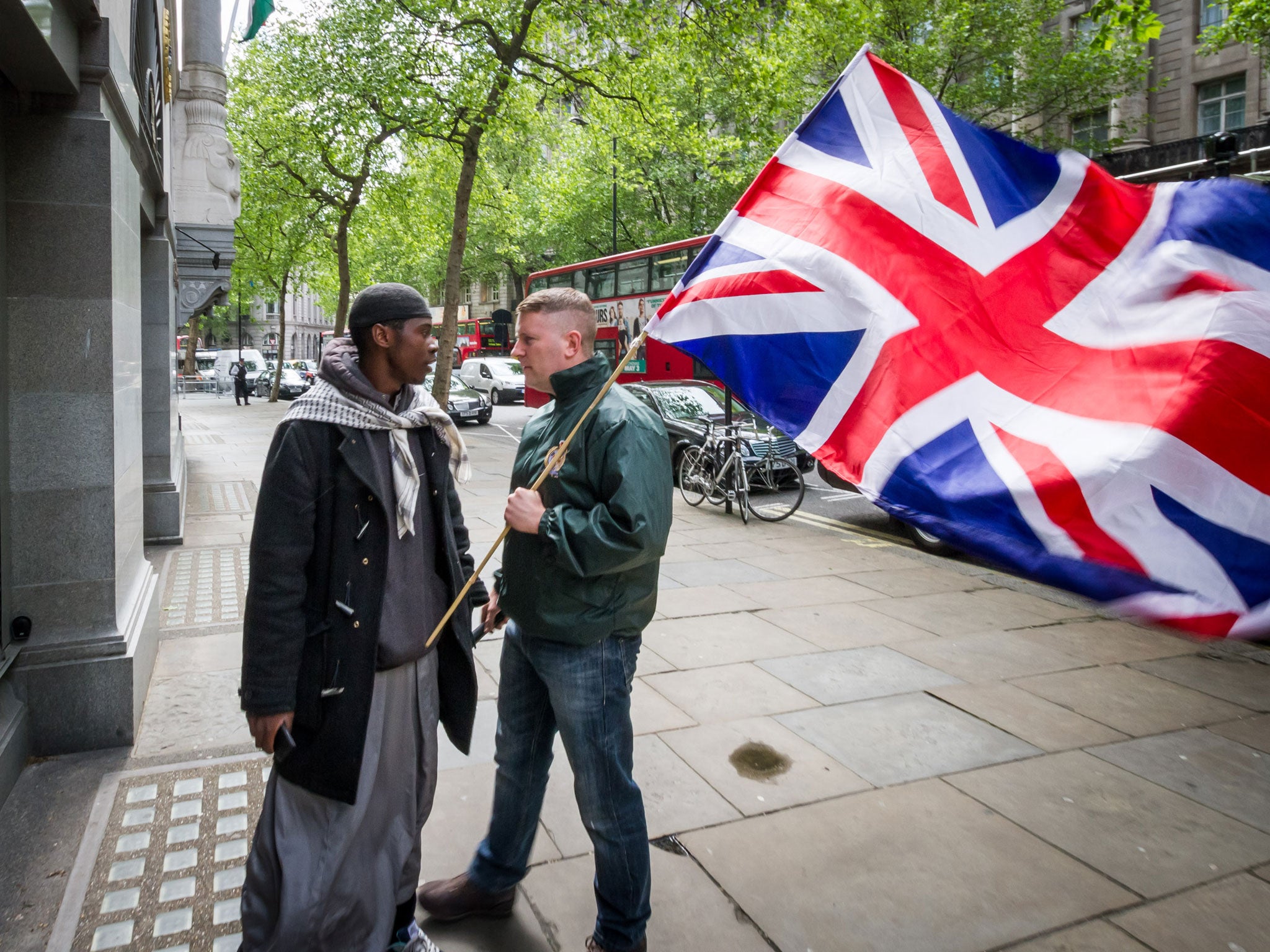In-your-face racism has returned and few are fighting against it
Those at the top say nothing, while ethnic-minority politicians are the biggest cowards of the lot

Last week on the No 9 bus, a middle-aged white woman shouted “bloody Paki” and spat at me. The sputum landed on the back of my seat, grey and revolting as she was.
No one said a thing, not even the black and Asian people around me. They all lowered or averted their eyes. I was spat at in 1972, too, after exiled Ugandan Asians with British passports arrived here. That time I was sitting quietly in a park in Oxford, reading Middlemarch. So you think it’s much better than the really bad old days? The truth is that, since 2001, in-your-face racism has returned. But those who suffer it just have to swallow the insults and degradation.
The difference is that, back then, we had politicians of all parties, including Tories, who felt keenly that racial prejudice and discrimination were unjust and reprehensible. They passed laws, used government purchasing power to get companies to operate fairly and, bit by bit, made racism unacceptable in the public space. Now those at the top – with the exception of Diane Abbott – say nothing and do even less about this stain on our society. Ethnic-minority politicians are the biggest cowards of the lot.
Even Margaret Thatcher, a little Englander, funded major projects to test the levels of race discrimination in Britain. I know because my husband, Colin Brown, was commissioned to carry out an expensive social survey paid for by her ministers. He devised empirical tests and proved that people were being denied jobs and housing because of their race or ethnicity.
Such work is not carried out any more because it is deemed unnecessary or a sop to political correctness. But we know, through analyses of various data, that while 20 per cent of young white people are unemployed, the figure for black youths is 50 per cent, and that landlords and estate agents now keep out non-white tenants. A survey in May found that more people admit they are racially biased than people did in the 1990s.
I was at the British Library last week discussing the resurgent racism with, among others, Penny Young, chief executive of NatCen, which produces the annual social attitudes surveys. There is now more tolerance of gay people and liberal lifestyles, but hostility to multiracialism is growing.
This is truly disturbing. Always remember Germany in the 1930s. When life gets tough, people instinctively turn on those they define as the other, the outsider. Jews, black and mixed-race people, Travellers and the disabled, were murdered en masse because they were felt to be a threat to national greatness.
Extreme right-wing parties are getting popular here and no one takes them on. The Olympics now seem like a great British hypocrisy. Good party, shiny medals won by athletes of colour, including the refugee Mo Farah, but racial hatreds keep rising. Why? The first reason is the frenzied public discourse on immigration. Oh, don’t you tell me the debates have nothing to do with race. That is the spin. Malign migrants, and asylum-seekers and the rest of us become fair game, too.
Then there is the phoney complaint that no one is allowed to debate immigration. As Matthew d’Ancona, erstwhile editor of The Spectator points out:“We have been reminded relentlessly and remorselessly that not all who question immigration are racist (it’s in Enoch Powell’s ‘Rivers of Blood’ speech if you care to look). Indeed the cliché is so familiar that one has to avoid the syllogistic trap and remind oneself that plenty of people who hate immigration are indeed bigots and xenophobes.”
I blame the minorities, too, for the vulnerable state we are in. Islamicist separatism and now Isis terrorism have turned good people off diversity. The anti-white prejudices within some Asian families are mortifying. Grooming gangs have destroyed young girls and also cohesion and mutual trust between the brown and white Britons.
We are also frighteningly vulnerable because anti-racists have given up on the struggle, unlike feminists or those fighting for gay rights. The Equalities and Human Rights Commission is, frankly, moribund and we could, but don’t, use the web to campaign against racial prejudices. Where is our Peter Tatchell? Where, indeed, is the next generation Anthony Lester, the human rights supremo who pushed through race relations legislation?
Britain could be an exemplary rainbow nation with a place for everyone. A few years back, we thought it was. It no longer is. In a globalised world, that is bad news, even for racists.
Join our commenting forum
Join thought-provoking conversations, follow other Independent readers and see their replies
Comments